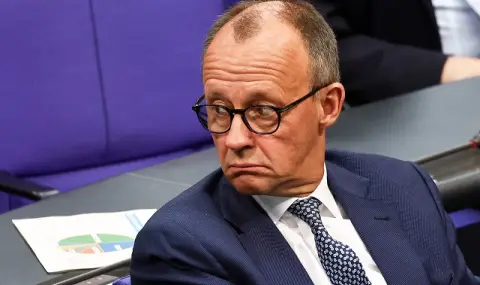Even before he officially takes office as German chancellor, Friedrich Merz faces serious political challenges - a decline in public trust, sharp criticism from his own conservative base and difficult coalition negotiations that threaten to undermine his promises of stronger German leadership in Europe, writes "Politico".
After winning the snap election on February 23, the leader of the Christian Democratic Union (CDU) promised "to strengthen Europe as quickly as possible", in response to growing tensions with the administration of US President Donald Trump. Instead, Merz's focus has shifted to internal party crises that threaten his legitimacy even before he takes office.
According to the latest Deutschlandtrend poll, support for the conservative bloc has fallen by three percentage points to 26%, while the far-right Alternative for Germany (AfD) is at a record 24%. Merz's own approval rating has fallen to 25% - 10 points lower than in February.
The criticism has intensified after Merz reached an agreement with the Social Democratic Party (SPD) and the Greens on a package of 1 trillion euros in new state spending on defense and infrastructure, including 100 billion euros for the green transition. While the initiative was welcomed abroad as the end of a decade of austerity, many conservatives in Germany saw it as a retreat from his election promises of fiscal discipline.
The reactions from the Youth Union, the youth organization of the CDU, were particularly harsh. Its leader, Johannes Winkel, who is also a member of the party leadership, threatened to vote against the future coalition agreement if it lacks clear commitments to limit migration, reduce bureaucracy and restore the country's competitiveness.
"If this course is not corrected immediately, you will destroy the trust of the people and the commitment of the members," the local structure in Cologne also warned.
The main problem for Merz is that he has little room for maneuver. After ruling out a coalition with the AfD, the only possibility of governing remains in partnership with the left-wing parties, which now dictate a significant part of the agenda. Merz is thus forced to balance the necessary compromises with coalition partners and the expectations of disappointed voters and party members.
"The situation on international stock and bond markets is dramatic and threatens to worsen," he told "Reuters", stressing that "restoring Germany's competitiveness must be the basis of coalition negotiations."
